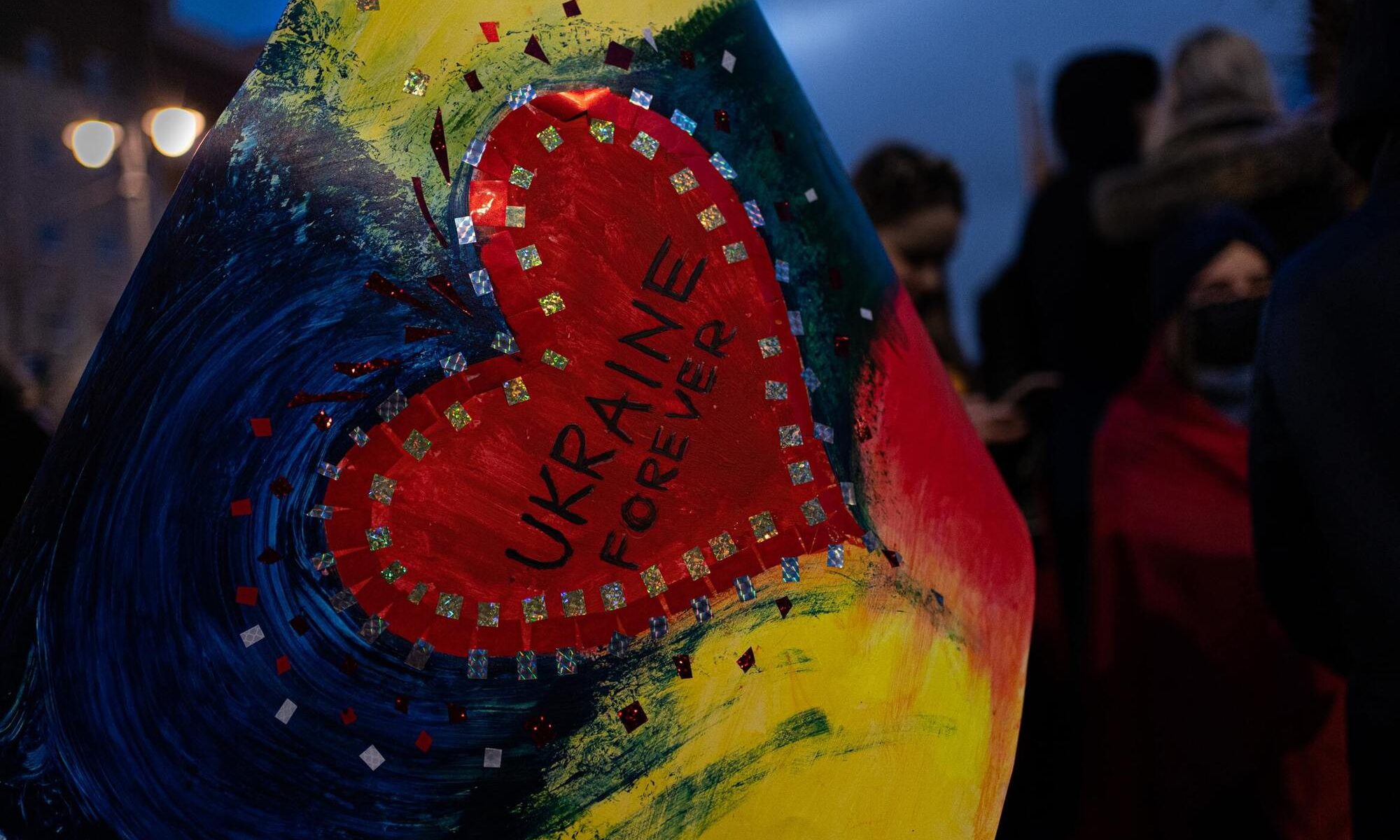This article was accurate at the time it was published. The situation in Ukraine is in flux, and there may have been changes from when you accessed this article.
The invasion of Ukraine came just days after the Beijing Olympics closing ceremony. Whatever joys that had been experienced by athletes and viewers have since evaporated. The idea that the Olympics is a unifying event seems closer to farce than it does to fact. Why is it that one 22 year old wins gold for a dazzling figure skating performance, while another 22 year old volunteers to take up arms and defend his country?
As much as Americans may think they are shielded by the ocean between, the repercussions of the attack on Ukraine will be acutely felt in tremors over the coming weeks. Beyond threats of further inflation or economic repercussions, the looming existential dilemma is bound to confront us once again.
“In the end, everything will be okay”
Has anyone ever said this to you? Perhaps it was said with the best of intentions. Thinking critically about this one-liner, however, should lead to more questions especially in light of the non-trivial challenges we’ve witnessed in the last several days. What proof is there for that? What does “okay” even mean?
The answers to these questions are far more satisfying when they address the existential angst in our souls instead of rationalizing to achieve some concrete end. It’s easy to look a child with a bruised knee in the eye and tell them that “it’s going to be okay,” but almost no one could confidently say the same thing to a mother who has just lost her child in the military crossfire. It would be wildly inappropriate.
The recent invasion of Ukraine reveals the weakness of any optimistic truism. Despite the complicated geo-political tensions that won’t be addressed in this article, it is worth noting that no country is willing to look Ukraine in the eye and confidently say, “Don’t worry, everything will be okay.”
In our darkest hours, we don’t want empty hope. We want tangible presence. Countries are imposing sanctions and sending aid to Ukraine, but the effect of such measures are categorically different than a country sending reinforcements in the form of personnel. I am not lobbying for or against any country to send this kind of military aid. I am highlighting the cognitive dissonance that exists when I desperately need a hand to save me from drowning but am met with a plan to drain water from the pool. This is a tension we now face, and there are no straightforward explanations.
As you pray for Ukraine, be wise and do not simply accept optimistic quips just because “all wars eventually come to an end.” Instead, take stock of what you believe based on who God has revealed himself to be. Remember that God’s power, which has been displayed throughout all ages, cannot be overwhelmed by anything in this world (John 16:33). Remember that God’s wisdom deemed it good to send Jesus, his son, to atone for our sins (2 Cor. 5:21) and give us everlasting life.
Boldly request that God’s presence be tangibly felt by your brothers and sisters huddling underground or fleeing their homes. Plead that they would be comforted and emboldened to proclaim the good news of the gospel wherever they are. Ask that they would remember God’s promise to be with them to the very end of the age (Matt. 28:20)—even when no one else is.
Editor’s Note: With the ongoing hostilities in Ukraine, we encourage all of our readers to pray for Ukraine and the state of our world. We also encourage you to find ways to help by donating your resources. Different media organizations have created lists of nonprofit organizations. You can also ask your church or denominational missions coordinator if they know of ways you can help.

